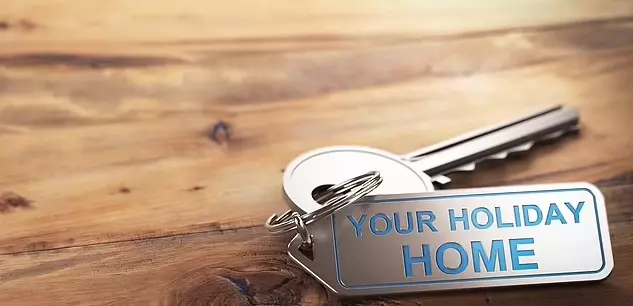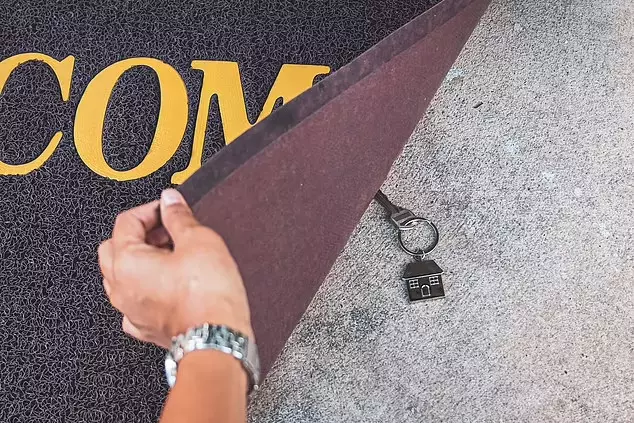Home Insurance – 5 ways you can invalidate without knowing
If you’re paying for your home insurance, it’s important to know what mistakes could potentially invalidate your home insurance and leave you without cover. And most claims made to insurers are rejected due to simple errors that make a policy invalid.
Many peoples could be wasting money on insurance they can’t benefit with, if they don’t follow the right steps to secure their home or property.
As summer holidays are at full swing these days, most homes are emptying out as so many families travel abroad for vacationing, and leaving their properties open to unexpected accidents or thieves.

Nowadays, very few holidaymakers check that their properties or homes are locked before traveling out, while some of them set their burglar alarms before long trips away.
In addition to these simple checks leave you unprotected against intruders, you could lose thousands if you are forced to make a claim that is denied.
5 ways you can invalidate your home insurance without knowing
What are the most common mistakes that leave home insurance useless? And, what kind of precautions you can take to secure your home and valuables properties with valid home insurance?
1. Letting out your home or property as a holiday let
One way that households could be invalidating their insurance is through letting out their home or properties as a rental holiday let.

Whether they are letting out a single room or listing their complete home on classified sites, you could be leaving yourself at risk if something wrong happened.
Some home insurance policies can protect you in this situation, if the home is only rented out occasionally – but to benefit with this point policyholders might have to pay an additional fee.
If someone is letting out their home more often, their home insurer may lose their insurance in case of a claim because such type of full-time holiday lets are required to have commercial insurance.
Before you rent out your room or home, you should communicate to your insurance provider to ensure you are fully safe, or to move to a more suitable insurance plan that could protect your home insurance in such situation.
2. Leaving your home or property empty
It doesn’t mean you can’t ever leave your home empty while you are out for some shopping sprees or head to work.
But if a home or property is left empty for some weeks or months, the property owner could be left uncovered as most insurance policies will only cover a maximum period of 30 days, if you left the home empty.
Take note that some insurance policies can cover vacant properties for up to 60 days with additional cost, but if you’re planning a long trip outside country or city, you may not be covered if the property get damages or any other losses.
In order to avoid such unsafe situation, you should speak to your insurance provider, who will help you get the right insurance or advise you of the steps you can take to keep your insurance valid, If you are planning on leaving your home for more than 30 days.
It is recommended to to ask a close friend or neighbor to house-sit for you while you are away, but on most standard policies the house needs to be considered ‘occupied’ by the house-sitter without single night empty.
3. Setting up a business from home with home insurance cover
Following the Covid-19 pandemic, millions of people around the world are continuing to work from their homes, and if you are one of them, you should inform your insurance provider to make sure you are fully covered.

Most home insurance policies provide cover for basic home working, such as computer work, emails, telephone calls or administration, but it is still necessary to inform your insurer to be on safe side.
Definition of working from home means you have more office stuff in your home property, which means you should increase the value of your home contents in addition to office equipment.
However, if run a home-based business, you are likely to need commercial insurance, especially if customers are visiting your home.
In addition, If you’re running a home-based business that requires you to keep some stock or products at your home, this can put your property at high risk of break-ins and robbery, or if you have customers visiting your home, there is also high risk of some mishap at your property.
4. Home renovations
If you’re renovating or making some upgrades at your home, it’s important to let your insurance company know what changes are being made in your home.
First thing to know, any major building work such as upgrades or extensions could be increasing the value of your property, and leaving you not fully covered if you need to claim on your insurance.
You don’t need to inform your insurance company if you’re just redecorating your home, but you should if you are building an extra bedroom, bathroom in your home.
In addition, home owners should know that building works could affects the terms of your insurance policy, as builders could have easy access to your home and valuable belongings while you’re out of home.
Make sure all your valuable things in your home are locked away whilst builders have access to your home or property.
5. Leaving your key under the mat
One of the most common mistakes that invalidate the home insurance is by taking minor risks which could have risky consequences.
According to research, one out of ten peoples put their home key under a doormat or plant pot, to allow their friends or neighbors to look after their properties while away on holiday for weeks.

According to the Insurers research, in incidents where money or valuables are stolen, there must be signs of forced entry such as broken locks, in order to make a valid insurance claim.
So keep in mind, if you lose your keys, or some thieves finds your spare key under your door mat or hidden in plant pot, you won’t be covered by your home insurance.
If you necessarily needs to keep a spare key somewhere accessible and outside of your home, you should think of buying a combination lock box to secure your stuff.
However, you should still communicate and confirm with your insurance provider to make sure such things does not affect / invalidate your home insurance.
Ultimately, the best practices you can follow to protect your home insurance is still valid is by being honest with your insurance provider.
Also read: How to get the best and cheapest Life Insurance:
For more related articles, visit Beskit Blog. Also visit our Jobs site for latest jobs in your area.
Disclaimer: All Images that are Used in this post from Instagram & Google Image and Credit Goes to their Respective Owner. Contact Us for Credit or Remove these Images.




